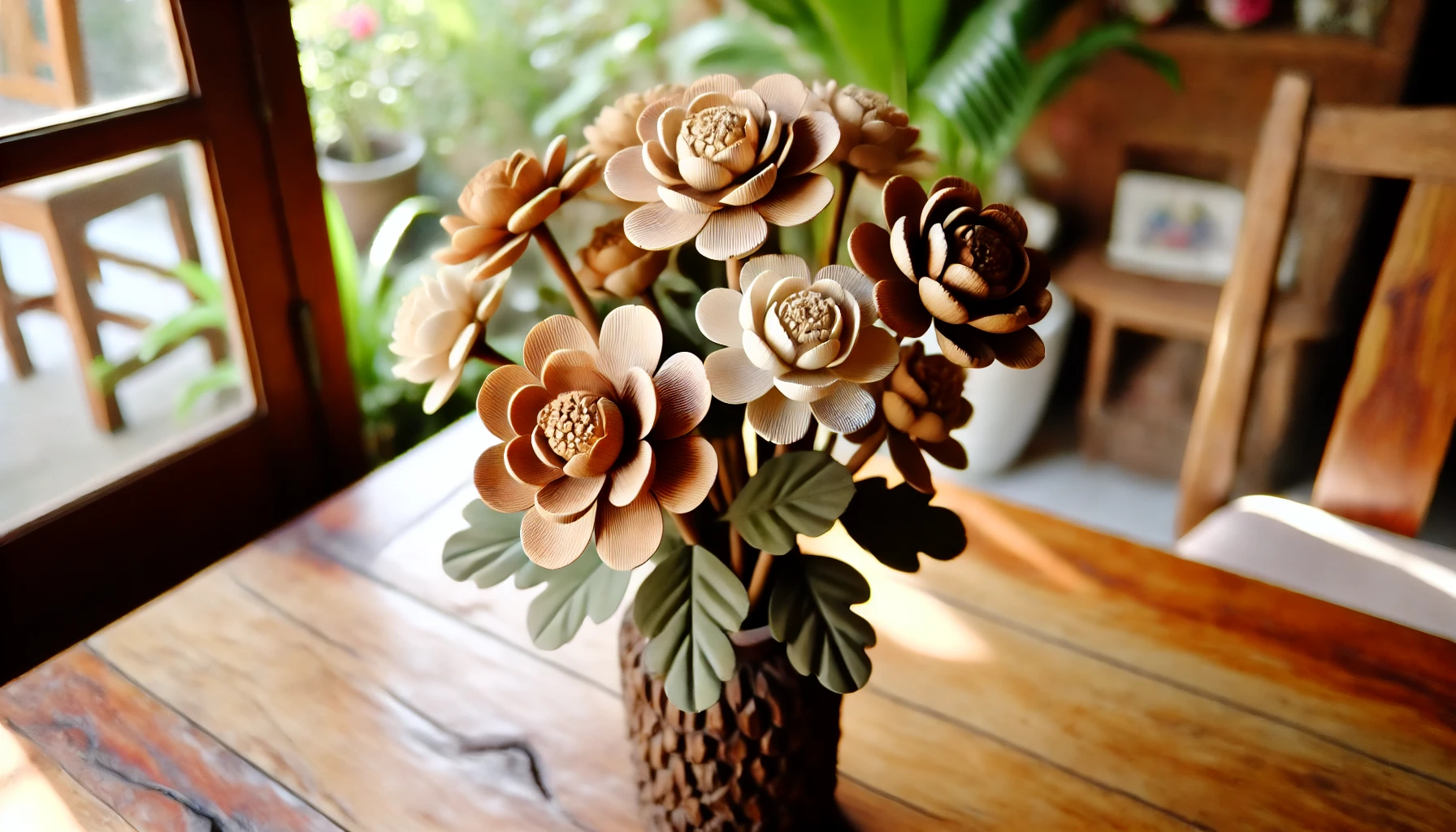In weddings and events, the choice of flowers often takes center stage. While traditional blooms are undeniably beautiful, their environmental impact can be significant. In recent years, many individuals are seeking sustainable alternatives that minimize their ecological footprint. Wooden flowers have emerged as a compelling option, offering a blend of beauty and environmental responsibility.
Sustainability in Floral Choices
The floral industry has a substantial environmental footprint. Traditional cut flowers require extensive transportation, water consumption, and chemical treatments. Additionally, cultivating certain flower species can contribute to deforestation and habitat destruction. As consumers become more aware of these issues, there is a rising demand for sustainable floral choices.
Comparison of Environmental Impacts: Wooden vs. Traditional Flowers
Wooden flowers offer several environmental advantages over traditional blooms:
- Reduced Transportation: Unlike cut flowers, which often travel long distances to reach their destination, wooden flowers are typically crafted locally, reducing the carbon emissions associated with transportation.
- Lower Water Consumption: Wooden flowers do not require the same amount of water as traditional flowers, which often need constant irrigation. This helps conserve water resources.
- Minimal Chemical Use: Wooden flowers are generally crafted using natural materials and processes, reducing the need for harmful chemicals that can pollute the environment.
- Durability and Reusability: Wooden flowers are more durable than traditional blooms, allowing them to be reused for multiple events. This reduces waste and minimizes the need for additional production.
- Support for Local Economies: By choosing wooden flowers, you support local artisans and businesses, contributing to the growth of sustainable economies.
Benefits of Sourcing Materials Responsibly
When selecting wooden flowers, it is essential to consider the sourcing of the materials used. Look for suppliers prioritizing sustainable practices, such as reclaimed wood or responsibly harvested materials. By supporting responsible sourcing, you can contribute to preserving forests and other natural resources.
Consumer Trends Towards Eco-Friendly Options
As consumers become more environmentally conscious, there is a growing trend towards eco-friendly choices. This includes a preference for sustainable products, such as wooden flowers. Many couples incorporate sustainable elements into their weddings, including their select flowers. By opting for wooden flowers, they can demonstrate their commitment to environmental responsibility while creating a beautiful and meaningful celebration.
Conclusion
Wooden flowers offer a sustainable and beautiful alternative to traditional blooms. By choosing wooden flowers, you can reduce your environmental impact, support local economies, and contribute to a more sustainable future. As consumers prioritize eco-friendly choices, wooden flowers are poised to become an increasingly popular option for weddings and events.


